
Press Center
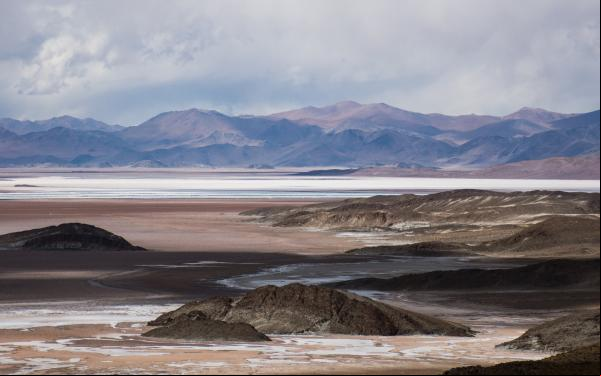
AIDA petitions Argentine court for protection of human rights in lithium mining case
In a legal brief ing the litigation of the indigenous communities of the Puna in Argentina, we ask the Court of Justice of Catamarca to cancel the permits for two mining projects to avoid irreversible environmental impacts on the territory of the Salar del Hombre Muerto. We also ask that it order a cumulative and comprehensive environmental impact assessment that meets international standards and guarantees the participation of the communities. In of the lawsuit filed by the Atacameños del Altiplano Indigenous Community, the Interamerican Association for Environmental Defense (AIDA) filed an amicus curiae or "friend of the court" brief before the Court of Justice of Catamarca, requesting that the national government and the government of the province of Catamarca, in accordance with their international obligations, protect the rights of local communities against the cumulative environmental impacts of lithium mining projects in the territory and watershed of the Salar del Hombre Muerto."The accumulation of lithium mining activities in the Salar del Hombre Muerto has exacerbated water stress in the province and today threatens to affect the health of indigenous communities due to the use of large quantities of water and polluting chemicals," said Yeny Rodríguez, Senior Attorney at AIDA. "In application of the principles of prevention and precaution, it is imperative that the State take measures to avoid further impacts; if it fails to do so, it may incur international liability for the damages caused."The brief provides grounds for the application of justice and for the defense of the rights to a healthy environment, to water and to the life project of the communities. The document shows that the national and provincial governments have an obligation under international treaties and standards, such as the American Convention on Human Rights, the Convention on Biological Diversity, and the Convention on Wetlands, among others, to use an environmental assessment that addresses comprehensive and cumulative impacts to authorize existing, proposed, and related mining projects.The writ was filed as part of the amparo action filed by the Atacameños del Altiplano Indigenous Community in August 2021. In it, they asked the Court of Justice of Catamarca to revoke the authorizations granted by the environmental authorities to the projects "Fénix Project Expansion" of the company Livent and "Sal de Vida" of the company Galaxy Lithium S.A., until a proper environmental impact assessment is carried out.In a decision released last March 13, the court ordered the provincial government, as a precautionary measure, to refrain from issuing new permits until a "cumulative and comprehensive" environmental impact study is conducted for all lithium mining projects being developed in the area, and to guarantee free access to information and free, prior and informed consultation with communities for all projects. However, the court did not accept the request to stop lithium mining in the area, so the socio-environmental risks remain.In this sense, in order to protect the ecosystem and not irreparably affect the life project of the indigenous peoples, AIDA presented arguments to the Court of Justice of Catamarca in of the communities' requests:In application of the international environmental principles of prevention and precaution, revoke the permits for the projects identified in the lawsuit and for all projects in the Salar Basin until an environmental assessment is carried out in accordance with international law.Order the competent authorities to carry out a cumulative and comprehensive environmental impact assessment, respecting at all stages the right to consultation or consent, as well as the right to timely and effective environmental participation of the Atacameños del Altiplano Indigenous Community. "AIDA reiterated before the Court that the Inter-American Court of Human Rights has ruled that the Environmental Impact Assessment is the measure that guarantees the subsistence of indigenous communities in the face of the restrictions imposed by the concessions granted in their territory," said Rodríguez.The brief points out that in this case — given that lithium mining and other projects have already caused serious environmental degradation and affected the water carrying capacity of the ecosystem, in addition to jeopardizing the community's livelihood project — the state had an obligation to conduct a cumulative and comprehensive environmental impact assessment.Due to low rainfall and water evaporation, the Salar del Hombre Muerto — an Andean wetland located in northwestern Argentina, between the provinces of Catamarca and Salta — has a negative natural water balance, which has been exacerbated in the last 27 years by lithium mining. This activity requires the extraction of large quantities of brine (water with a high salt content) and fresh water (surface and groundwater).The region of the Salar Basin has been inhabited for more than 10,000 years by indigenous communities who have a special relationship with the environment that guarantees their individual and collective survival, their culture and their traditions. As a result of lithium mining, their have had to change their traditional practices and have also suffered water shortages and significant animal losses.The Fénix mining project has diverted the Trapiche River to the point of drying up its last stretch before it reaches the salt flats. And the expansion of mining activities in the area threatens to dry up the Los Patos River as well.In the development of the projects mentioned in the lawsuit, the companies did not provide information to the communities, did not hold public hearings with their participation, and did not carry out a process of free, prior and informed consultation.Press :Víctor Quintanilla (Mexico), AIDA, [email protected], +521 5570522107
Read more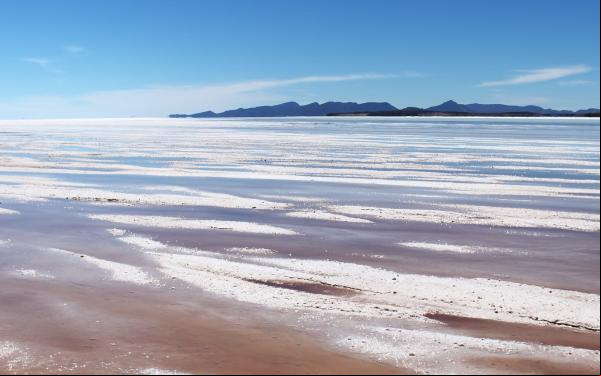
UN takes major step toward prioritizing justice regarding transition minerals
The United Nations’ Critical Energy Transition Minerals issued a series of recommendations and voluntary principles aimed at ensuring equitable, fair and sustainable management of these minerals. The guidelines are aimed at governments, industry and other stakeholders in energy transition processes.This comes at a time when the global renewable energy movement, which seeks to reduce emissions that exacerbate the climate crisis, has highlighted how the environmental and social costs of transition minerals extraction fall disproportionately on local communities and ecosystems.Claudia Velarde, co-director of the Ecosystems Program of the Interamerican Association for Environmental Defense (AIDA), said: “For Latin America, the recommendations and principles are very important, since a large part of the reserves of resources essential for the energy transition are in the region, in complex territories rich in biological and cultural diversity.Significantly, the places human rights and justice at the center, recognizing the complexity of the energy transition and the inequality between countries in the global South that host the minerals and those in the North that need them for their own transition.To move forward with justice, the energy transition must break with the development status quo, include perspectives from the global South, respect the human rights of local communities, and recognize ecosystem boundaries.While there is still a long way to go to achieve a truly just and popular energy transition for Latin America, we hope that this contribution will be a step in that direction.” The recommendations and principles are contained in a report in which the explains how the transition t to renewable energy can be based on justice and equity, promoting sustainable development, respect for people, and protection of the environment in developing countries.The proposes seven voluntary guiding principles, based on standards, commitments and legal obligations established in United Nations texts:Human rights must be at the core of all mineral value chains.The integrity of the planet, its environment and biodiversity must be safeguarded.Justice and equity must underpin mineral value chains.Development must be fostered through benefit sharing, value addition and economic diversification.Investments, finance and trade must be responsible and fair.Transparency, ability and anti-corruption measures are necessary to ensure good governance.Multilateral and international cooperation must underpin global action and promote peace and security. Read the report: https://www.un.org/sites/un2.un.org/files/report_sg__on_critical_energy_transition_minerals_11_sept_2024.pdfLearn more about : https://www.un.org/en/climatechange/critical-mineralsPress :Víctor Quintanilla (Mexico), [email protected], +5215570522107
Read more
Organisations demand justice in criminalization case against Rigoberto Juárez, ancestral authority and environmental and human rights defender of Guatemala
Organisations dedicated to the protection of human rights defenders, and national and international organisations working on the promotion and protection of human rights and indigenous peoples rights, express our concern over the criminalization process against Rigoberto Juárez, ancestral authority, environmental and human rights defender, and general coordinator of the Plurinational Ancestral Government of the Original Nations Mayas Akateka, Chuj, Q’anjob’al y Popti’.The judicial process against Rigoberto began in 2015 due to his role as a mediator and ancestral authority in a land conflict within the Q'anjob'al territory, specifically in the Ixquisis micro-region. This conflict arose from the indigenous Maya community's resistance to the poorly implemented and unconsulted hydroelectric projects by Energía y Renovación S.A., financed by BID Invest.The judicial process lacked an intercultural and differentiated approach. Additionally, the decisions made in the second instance and by the cassation court have ignored the factual and legal arguments presented by the defense regarding Rigoberto Juárez's role as an ancestral authority, which involved, at the community's request, assuming a mediator role in the high-conflict situation.From the perspective of the g organizations, this judicial process has been used as a reprisal mechanism against the human rights defender’s legitimate human rights work. In particular, due to his crucial role in bringing visibility to, and reporting on, the Ixquisis case through a complaint submitted to the Independent Consultation and Investigation Mechanism (MICI) of the Inter-American Development Bank. Evidence of this can be found in the temporal overlaps of this process with crucial moments of the complaint filed with the MICI.In view of this concerning situation, we request judicial authorities to consider the arguments submitted by the legal defense of Rigoberto Juárez in the amparo action filed on 22 August and to make a decision that takes into the specific guarantees of Rigoberto Juárez as an ancestral authority and as an environmental and human rights defender. Likewise, we call on international human rights institutions to urge the State of Guatemala to resolve the case of Rigoberto in accordance with their international obligations, and to prevent and address the serious trend of criminalization of indigenous authorities exercising their rights and responsibilities. Signed by:International Platform against ImpunityProtection International MesoaméricaInteramerican Association for Environmental Defense (AIDA)Franciscans InternationalRed Nacional por la Defensa de la Soberanía Alimentaria en Guatemala (REDSAG)Bank Information CenterInternational Service for Human RightsFront Line DefendersNISGUA (Network in Solidarity with the People of Guatemala)ASERJUSP. Marco Tulio Recinos Torres. PS.Center for International Environmental Law (CIEL)María Eugenia Solís GarcíaAlba Cecilia del Rosario Mérida PiedrasantaPress :Víctor Quintanilla (Mexico), AIDA, [email protected], +521 5570522107
Read more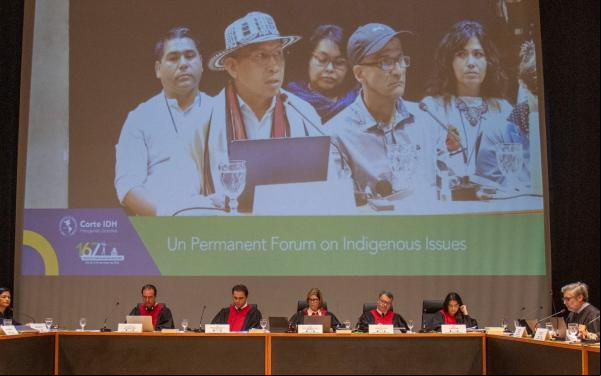
Declaration of Manaus urges the Inter-American Court to clarify State obligations in climate emergency
San Jose, Costa Rica - Today, a coalition comprising over 400 communities, Indigenous and Tribal Peoples, and representatives of civil society presented the “Declaration of Manaus on Human Rights in the Climate Emergency” to the Inter-American Court of Human Rights (IACtHR). The widely endorsed declaration calls on the Court to articulate, in its forthcoming Advisory Opinion on the Climate Emergency and Human Rights, minimum standards for respecting and protecting human rights in the context of the climate crisis. It draws upon the insights of more than 150 participants who contributed during the public hearings on the process of the Advisory Opinion mentioned.The hearings, conducted in Bridgetown, Barbados (April 22–25), Brasilia (May 24), and Manaus (May 25–29), Brazil, served as a forum for the presentation of compelling testimonies from individuals and entire communities impacted by the climate emergency. In Manaus, in the heart of the Amazon, there was a strong emphasis on the expectation that the Court would issue a robust advisory opinion aimed at ensuring the protection of both people and the planet.The Declaration urges the Court to clarify the human rights obligations of States and reinforce the ability of corporations and financial actors for their role in the climate crisis."The role played by the IACtHR Advisory Opinion is strategic at a historic moment for climate justice globally. The Court’s decision can reinforce and expand on what has already been established by the International Tribunal for the Law of the Sea (ITLOS) on the obligations to protect the oceans from climate change. It will undoubtedly influence the subsequent interpretation of the International Court of Justice (ICJ) on the duties of States to protect communities and the planet in the face of the climate crisis," said Marcella Ribeiro, senior attorney with the Human Rights and Environment Program of the Interamerican Association for Environmental Defense. "The standards set by the Court will set new paradigms for access to justice in the context of the triple planetary crisis, influencing pending and future cases, as well as laws and policies inside and outside the continent. Lastly, this decision has great potential to help overcome the political ime in the international climate negotiations."The Declaration, signed by over 400 parties, requests the Court to:Acknowledge that in the face of the climate emergency, all human rights, including the right to a healthy environment, must be upheld by all States. This obligation should be interpreted under the principle of Common but Differentiated Responsibilities and in line with the average global temperature increase limit established by the Paris Agreement and informed by the best available science.Specify that States need to transition to fossil-free economies without harming local communities and causing environmental impacts that exceed planetary limits.Ensure public access to information and participation, as well as the right to climate justice. This includes providing legal and institutional mechanisms for communities affected by the crisis to seek legal recourse, as well as raising awareness and training the judiciary on climate-related issues.Protect and facilitate the work of environmental defenders in the context of the climate emergency and energy transition.Guarantee adaptation measures to address the effects of climate change, ensuring the protection of all human rights, especially for vulnerable or historically discriminated groups.Uphold the right to self-determination of Indigenous and Tribal Peoples by obtaining their consent for measures directly affecting them in the context of climate change and energy transition.Ensure that victims and survivors of climate-related harm are granted comprehensive and just reparations and that climate judgments have financial resources for their implementation. "The Manaus Declaration also addresses corporate responsibility for the crisis. We urge the Court to reinforce States’ obligations to regulate corporate actors and ensure that those responsible for human rights violations related to the climate crisis are held able," adds Luisa Gómez Betancur, senior attorney at the Center for International Environmental Law (CIEL). "Consistent with the polluter pays principle in international law, fossil fuel and agribusiness companies that are the primary drivers of climate change must cover the costs of mitigation and adaptation, as well as provide full reparation to victims for climate harm."Those ing the Declaration are urging the IACtHR, as a guardian of human rights, to take a strong and forward-thinking stance. This approach should hold those who have had the most impact on the climate crisis responsible, guide inter-American policies towards environmentally sustainable economies, and establish a foundation for climate, environmental, and social justice worldwide, starting with Latin America."We hope that by listening to the testimonies of those of us who suffer the worst consequences of the climate emergency, the IACtHR will heed our call and order the States to respect our right to self-determination and the way in which we relate to our territories, prioritizing their care and conservation. For this reason, we our voices in the Manaus declaration to remind the Court of the unique opportunity it has to mark a before and after in the fight for climate justice and the protection of our rights," said Everildys Córdoba Borja, legal representative of the Community Council of Black Communities of the Tolo River Basin and Southern Coastal Zone (COCOMASUR), Colombia.Read and the declaration Press sNiccolo Sarno, CIEL, [email protected] Arista, EarthRights International, [email protected], +51 941 242 447Karina Saravia, CANLA, [email protected], +505 84331292
Read more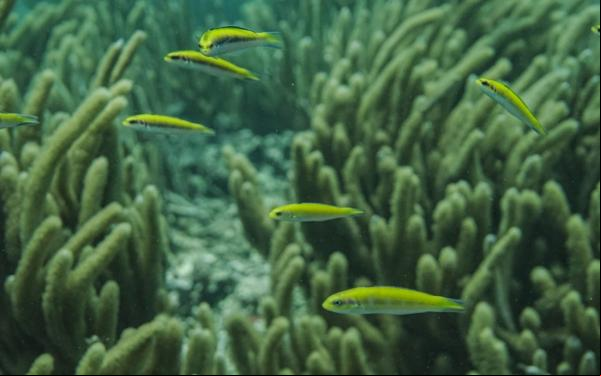
Mexican Supreme Court order to protect the Veracruz reef still unenforced
A port expansion project threatens the reef that hosts the greatest biodiversity of reef species in the western Gulf of Mexico. More than two years after the Supreme Court of Mexico ordered the adoption of several measures to protect the Veracruz Reef System and surrounding ecosystems affected by a port expansion project, the Ministry of Environment and Natural Resources (Semarnat) still refuses to comply with the ruling, putting the largest reef in the Gulf of Mexico and its environmental benefits at risk. The environmental organizations Territorios Diversos para la Vida, A.C. (TerraVida), Mexican Center for Environmental Law (CEMDA), Interamerican Association for Environmental Defense (AIDA) and Earthjustice denounce this failure to comply with the court order. The Veracruz Reef System—a Wetland of International Importance under the Ramsar Convention since 2004—hosts the greatest biodiversity of reef species in the western Gulf of Mexico and is home to several critically endangered species such as the hawksbill sea turtle. The reefs are of high importance to the Veracruz community because they protect the coast from hurricanes and local fishing and tourism. On February 9, 2022, residents of Veracruz won a victory before the Supreme Court in an amparo action filed to defend the Veracruz reef and other relevant ecosystems from the impacts of the port expansion. The highest court in Mexico determined that Semarnat violated the people of Veracruz’s right to a healthy environment after finding the project’s approval to be severely deficient. As a result, the Court ordered the revocation of the project’s permits, as well as a complete and holistic reevaluation of the project’s impacts, tasks that Semarnat has not yet complied with. "Today, the right to a healthy environment of the people living in the Veracruz-Boca del Río-Medellín metropolitan area continues to be violated because Semarnat, when re-evaluating the port expansion’s environmental impact after the court order, used outdated scientific information, failed to conduct a new evaluation, and allowed the port to again fragment its project by separating out the rock quarries and breakwaters," said Francisco Xavier Martínez Esponda, co-coordinator of TerraVida, the organization representing the plaintiffs in the lawsuit. "In short, the project was never evaluated in a complete and holistic manner, as ordered by the Court, and therefore we remain unaware of the project’s true environmental risk." The environmental authority had authorized the project in a fragmented manner, dividing it into 15 sections, which it evaluated and approved independently, obscuring its full impact. Far from complying with the court’s order, on December 30, 2022, Semarnat's General Directorate of Environmental Impact and Risk conditionally reauthorized the Veracruz port’s expansion, but once again in a fragmented manner, without adequately assessing the full project using the best available science and without allowing for public participation, as the court required. In its decision, Mexico’s highest court also ruled that Semarnat was obligated, among other things, to seek international technical assistance to preserve the site within the framework of the Ramsar Convention, an intergovernmental treaty for the protection and sustainable use of wetlands and coastal areas. To date, Semarnat has not yet finalized its request for international . "In the absence of adequate and meaningful government efforts, there is a clear delay in obtaining expert advice from the Ramsar Convention," said Jorge Lu Palencia, an attorney with AIDA. "It is paradoxical that the expansion of the port has been authorized while still awaiting an independent technical evaluation, which, by its nature, should be prior to any decision that puts the ecosystem at risk." In addition, a scientific analysis prepared by independent researchers concluded that the mitigation measures proposed by the project promoter—the Veracruz Port System istration—are not capable of avoiding the adverse consequences on the Veracruz reef because they were not based on a scientifically valid assessment of the project’s impacts. The scientific analysis shows that the environmental agency has not studied the potential impacts on the entirety of the reefs within the Veracruz Reef System National Park. In addition, dredging activities were carried out without considering the direct impact on the invertebrate species that inhabit the marine sediments. In view of the situation, the analysis recommends an external evaluation provided by a public research center. For these reasons, the organizations, at different times, have requested the Fifth District Court in Veracruz—in charge of supervising compliance with the judgment—to withhold from ruling on compliance with the judgment until these deficiencies are corrected. Press s Gabriela Sánchez, TerraVida, [email protected], +52 5511429935 Víctor Quintanilla (Mexico), AIDA, [email protected], +521 5570522107
Read more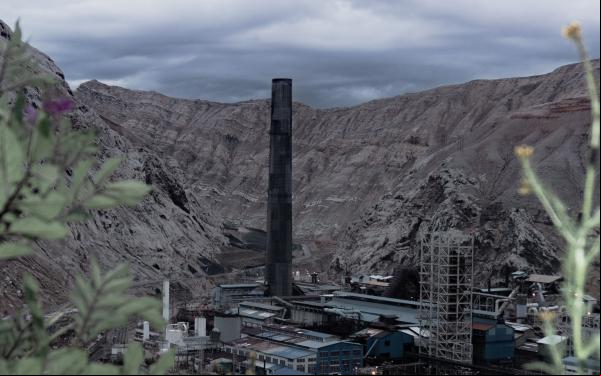
Warning of increased contamination in La Oroya and slow progress by the State to comply with the Inter-American Court ruling
The State's progress in implementing the international court's ruling has been slow and insufficient. Meanwhile, a high level of sulphur dioxide has recently been ed in the Andean city due to the partial reactivation of the metallurgical complex and the lack of prevention, warning, monitoring and control measures by the state. Two months after the Inter-American Court of Human Rights issued its ruling in the case "La Oroya Community vs. Peru," the Inter-American Association for Environmental Defense (AIDA) and the Pro Human Rights Association (APRODEH), organizations that legally represent the victims, warned at a press conference that the Peru is making slow and insufficient progress in effectively complying with the ruling.The ruling, issued on March 22 and considered a landmark in international law, established Peru’s responsibility for violating the rights of La Oroya residents affected by decades of toxic contamination.The international tribunal ordered comprehensive remedial measures, including environmental cleanup, reduction and mitigation of polluting emissions, air quality monitoring, free and specialized medical care, compensation, and a resettlement plan for the affected people. Increased pollution in La OroyaThe organizations also denounced that the government’s slow action is occurring in the midst of an increase in the presence of toxic contamination in the area due to the partial reactivation of the La Oroya Metallurgical Complex and the lack of prevention, warning, monitoring and control measures by the state.According to the Environmental Monitoring System of the Environmental Evaluation and Control Agency, a high presence of sulfur dioxide has recently been recorded in La Oroya, which makes it imperative that Peru take urgent action based on its international responsibility.One of the measures ordered by the Inter-American Court is to ensure that the operations of the La Oroya Metallurgical Complex comply with international environmental standards, preventing and mitigating damage to the environment and human health. Challenges in implementing the rulingDuring the press conference, Rosa Peña, Senior Attorney for AIDA's Human Rights and Environment Program, said: "The ruling is a great opportunity for the State of Peru to prevent and better manage the environmental impacts of mining and metallurgical activities, as well as to improve health care for people exposed to contamination. The Court has already identified the key aspects, now it is up to the State as a whole to ensure a good implementation that will serve as an example for other cases at national and international levels."Christian Huaylinos, coordinator of the legal sector of APRODEH, emphasized the need for an articulated multisectoral work: "A coordinated effort of the three levels of the state—local, regional and national—is needed to advance in the effective compliance of the sentence. In addition, clear mechanisms must be put in place to ensure the effective participation of victims in the implementation of the orders issued by the Court." Community demandsYolanda Zurita, a petitioner in the case, emphasized the community's frustration with the lack of prompt and effective action: "We, as a population, need to feel and see that there is compliance. It is not possible that after 20 years of litigation, and after the Court's ruling has been made public, there are officials who claim to be ignoring the ruling."The Inter-American Court's ruling not only focuses on reparations for direct victims, but also includes restitution measures and guarantees of non-repetition for the entire population of La Oroya and the country. It defines parameters for the proper conduct of mining and metallurgical operations in Peru, in defense of the environment and health.The ruling is an important precedent for the protection of the right to a healthy environment in Latin America and for adequate state oversight of corporate activities.AIDA and APRODEH urge the Peruvian government to comply with the measures ordered by the Inter-American Court and to take immediate action to protect the environment and health of the community of La Oroya.Press Víctor Quintanilla-Sangüeza (Mexico), AIDA, [email protected], +52 5570522107
Read more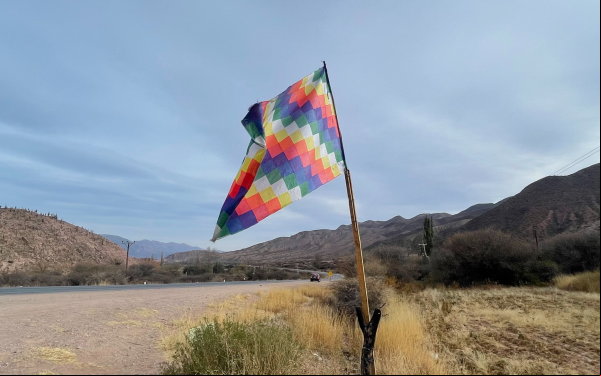
Argentina: the scramble for lithium threatens the rights of Indigenous Peoples in Jujuy
International civil society organisations with extensive experience in the defence of the environment and human rights present the conclusions of an observation mission to the Argentinian province of Jujuy in August 2023 following the constitutional reform approved in June of the same year, which facilitates lithium extraction. Paris and San Salvador de Jujuy. In a report published today, ten international civil society organisations with extensive experience in human rights and environmental issues warn that the lack of prior consultation of the 11 Indigenous Peoples of Jujuy in the approval process for the reform of the provincial constitution is incompatible with international human rights and environmental standards.The report also denounces that the new Jujuy Constitution authorises productive activities on public lands, which opens the door to the implementation of extractive projects in Indigenous ancestral territories, without guaranteeing prior, free and informed consultation with the communities. It also approves the large-scale use of water, which facilitates the use of an essential resource for the survival of Indigenous Peoples for the exploitation of lithium, an activity with a high water footprint.The constitutional reform process is framed in a context of mining deployment in the high Andean wetlands of Jujuy, whose watersheds are located in the area known by the mining industry as the "lithium triangle", located on the borders of Argentina, Bolivia and Chile. This area is so named because it is the largest, most easily extractable and economically profitable lithium reserve in the world."We denounce the permanent and disproportionate restriction of the right to social protest introduced by the Jujuy constitution - in particular the general prohibition of road and street blockades, which are not only a legitimate form of peaceful demonstration, but are also protected by international law," the organisations point out.The report also highlights the testimonies of victims of police repression, who suffered arbitrary detentions and serious physical injuries caused by the excessive and unjustified use of force. It also documents the cases of protesters who are currently facing arbitrary and disproportionate criminal proceedings for participating in and promoting public demonstrations against the constitutional reform.In light of the findings presented in the report, the organisations:Request compliance with the international obligations of the Argentinian State to guarantee the protection of the collective property of Indigenous communities over their ancestral territories, as well as to guarantee the right to water intended for human consumption and the reproduction of life.Urge the authorities to refrain from promoting regulations that restrict the ways, places or times in which citizens can exercise their right to demonstrate publicly.Make an urgent call to the judiciary to assess, based on a rigorous examination of international human rights standards, the probable unconstitutionality of the approval process for the reform and its contents. Relationship between the events in Jujuy and the reforms promoted by Javier Milei’s governmentThe analysis offered in the report on what happened in Jujuy is especially relevant in the current national context because President Javier Milei’s national government has followed a similar line to the trend observed in Jujuy of promoting reforms that deepen an extractivist model in protected ecosystems of the country. This occurs while eliminating frameworks for the protection of human and environmental rights and facilitating the repression and criminalisation of legitimate protests, as detailed in the report.Through Decree of Necessity and Urgency No. 70/2023, President Milei repealed the Land Law (26.737) on 20th December 2023, eliminating restrictions aimed at preventing land grabbing by foreign investment projects. In addition, the "omnibus" bill proposes to repeal environmental protection laws to facilitate economic activities in ecosystems such as native forests and glaciers.These measures, similar to those implemented in Jujuy, were accompanied by disproportionate restrictions on the exercise of the right to protest. For example, on 14th December 2023, the executive approved the "protocol of anti-picketing action", which considers any demonstration that interrupts or decreases the movement of people a flagrant offence, requiring police intervention. Read the report
Read more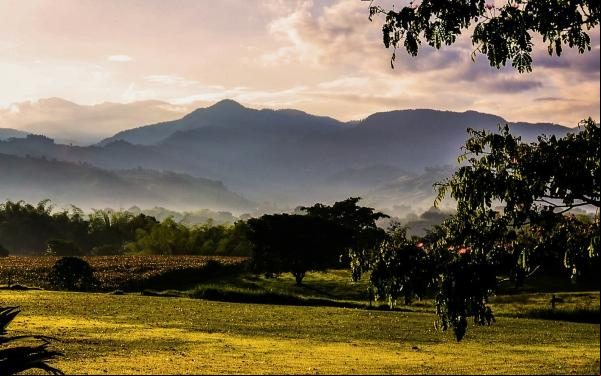
Celebrating the appointment of Astrid Puentes Riaño as UN Special Rapporteur
On April 5, during its 55th session, the United Nations Human Rights Council appointed Astrid Puentes Riaño as the new UN Special Rapporteur on the human right to a clean, healthy and sustainable environment. For 18 years, as co-executive director of AIDA, Puentes Riaño led efforts across Latin America to uphold the right to a healthy environment and protect affected communities from environmental harms. Her strategic vision and powerful command of public interest law and advocacy has left a lasting contribution on both AIDA and the larger movement for climate justice in the region. She will be the first woman and first person from the Global South, and the third Special Rapporteur, to assume this important mandate. Gladys Martínez de Lemos, executive director of AIDA, expressed: “Astrid’s career has long been focused on protecting the right to a healthy environment, as a leader of the movement in Latin America. Her new role as Special Rapporteur is a natural and well-deserved progression, and we know her continued leadership on the international stage will strengthen efforts towards climate and environmental justice around the world.” In May Puentes Riaño will replace David R. Boyd, who made tremendous strides as Rapporteur, including the UN recognition of a clean, healthy and sustainable environment as a universal human right. Boyd is a former member of AIDA’s Board of Directors. The Special Rapporteur’s mandate is an essential nexus of environmental and human rights defense, as it exists to: examine human rights obligations linked to the enjoyment of a safe, clean, healthy and sustainable environment; promote best practice in the use of human rights in policy making; identify challenges and obstacles to the global recognition and implementation of the right to a safe, clean, healthy and sustainable environment; and conducting country visits and responding to human rights violations.
Read more
Court decision stops new lithium mining projects in Argentine salt flat, sets regional precedent
On March 13, the Supreme Court of Argentina’s Catamarca province ordered a halt on authorizing new lithium mining projects around the Salar del Hombre Muerto, in the department of Antofagasta de la Sierra. The high provincial court established that all projects must comply with the free, prior, and informed consultation of affected communities, thus granting the injunction filed by Román Guitián, Cacique of the Atacameños del Altiplano Indigenous Community.It is one of the most important rulings of recent times regarding care for nature and the protection of the rights of traditional communities.The court ordered the providence’s Ministry of Mining and the Ministry of Water, Energy and Environment to "refrain from granting new authorizations or environmental impact statements with respect to any work or activity" in the area until an environmental impact report with two fundamental characteristics is completed. The first is that it must be "cumulative and integral," covering the entire salt flat and especially the Los Patos River, which is in the same salt flat. The second is that it must consider the total impact of the companies that have applied for water use and extraction permits, and their potential to transform the environment in the same geographical area.Lithium mining in Antofagasta de la Sierra began in 1997 by the multinational company FMC, currently operating as Livent. The local communities denounced that the river and the Trapiche Valley were drying up because of the mining activity.The Alliance for Andean Wetlands (Alianza por los Humedales Andinos) celebrates this achievement of the Atacameños del Altiplano Indigenous Community and the Asamblea PUCARA (Pueblos Catamarqueños en Resistencia y Autodeterminación).The same model of lithium mega-mining that the Catamarca Supreme Court's ruling points to is being reproduced in the Puna region of Chile and Bolivia. In this sense, the sentence is an important precedent for the protection of the environment and affected communities, which should be replicated in all the regions of the continent affected by this extractive model.Governments must take measures to provide the necessary security guarantees for the territorial defense of local communities demanding the fulfillment of their human and environmental rights, both in Argentina and in other countries. Quotes from Alliance Claudia Velarde, co-coordinator of the Ecosystems Program of the Interamerican Association for Environmental Defense (AIDA)"What happened in Catamarca is a historic milestone for the protection of water, territory and life in Latin America. The Court's decision confirms that the concept of the cumulative impact of an extractive activity is fully valid and a transcendental aspect of environmental management. It also clarifies that any damage to the environment that may result in a violation of the right to life or personal integrity must be considered significant damage. It is a relevant precedent in every sense and a strong message: national and international environmental regulations must be respected, environmental impact assessments must be strategic and cumulative, the right to environmental participation must be guaranteed, and the energy transition must be just." Ramón Balcázar, executive director of Fundación Tantí and co-coordinator of the Plurinational Observatory of Andean Salt Flats (OPSAL)"This ruling is the result of years of work and shows the importance of articulating knowledge and legal strategies for the defense of territories from a wetland perspective, setting a precedent that should be extended to the entire region for a cumulative assessment of projects, not only lithium, but also metallic mining and the impacts of climate change. Unfortunately, our colleague Román Guitián was the target of death threats after learning of the ruling, in a country like Chile that has ratified the Escazú Agreement. In this sense, we must categorically reject any form of violence against the defenders of the Andean salt flats, as well as the political advantage that institutions linked to the greenwashing of mining have tried to take from such a complex situation." Cristian Fernández, coordinator of the Legal Affairs area of Fundación Ambiente y Recursos Naturales (FARN)"The recent ruling of the Court of Justice of Catamarca, ordering the preparation of a "cumulative and integral" environmental impact study for all lithium projects being developed in the Los Patos River basin, and requiring the local government to refrain from issuing any new permits or authorizations for the activity, represents a milestone in the environmental jurisprudence of our country. It consolidates the path started almost 15 years ago by the Supreme Court of Justice of the Nation when, in the "Salas Dino" case, it demanded a cumulative impact study against the deforestation of native forests in Salta. In doing so, the Catamarca Court set a precedent that could be applied to the ecosystem damage suffered by the provinces of Salta and Jujuy due to the cumulative impact of numerous lithium projects in Salinas Grandes and Guayatayoc Lagoon."
Read more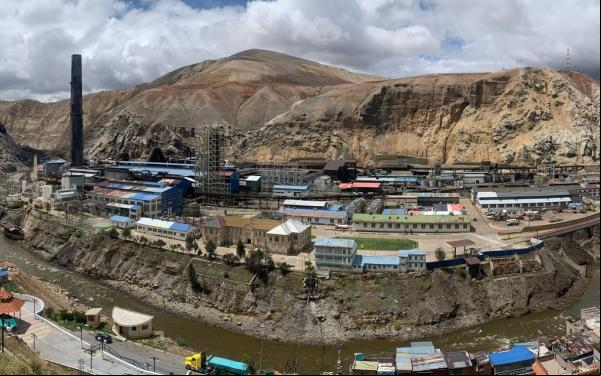
Inter-American Court ruling on La Oroya case sets key precedent for the protection of a healthy environment
The Court found Peru responsible for violating the rights of residents of La Oroya, who have been exposed to unsafe levels of toxic contamination for generations. San José, Costa Rica. The ruling of the Inter-American Court of Human Rights in the case "Community of La Oroya vs. Peru" sets an important precedent for the protection of the right to a healthy environment across the Americas and for adequate state oversight of corporate activities. The first-of-its-kind decision holds Peru able for its failure to protect the inhabitants of the Andean city of La Oroya who were exposed to toxic pollution from a smelter complex that operated without adequate pollution controls for a century.The Inter-American Court heard the case in a public hearing against Peru. In the absence of effective responses at the national level and on behalf of the victims, an international coalition of organizations filed a complaint against Peru before the Inter-American Commission on Human Rights in 2006. In October 2021, the Commission established the Peruvian government's responsibility in the case and referred it to the Inter-American Court. In October 2022, more than 16 years after the filing of the complaint, the victims presented the case before the Court in a public hearing, represented by the Interamerican Association for Environmental Defense (AIDA) and the Pro Human Rights Association (APRODEH), with the of Earthjustice."This ruling is a very important step forward and a key precedent for environmental justice in Latin America, as it is the first case in which the Court recognizes a state’s responsibility for violating the right to a healthy environment and the impact this has on the guarantee of several other rights," said Liliana Avila, coordinator of AIDA's Human Rights and Environment Program. "The Court also referred to the collective and individual dimensions of this right, acknowledging the differential impact of its violation on children, women and the elderly, and the important role of environmental defenders."In its judgment, published on March 22, 2024, the international court established the Peru’s responsibility for the violation of the rights to a healthy environment, health, personal integrity, life with dignity, access to information, political participation, judicial guarantees and judicial protection of the 80 people involved in the case; for the violation of the rights of the children of 57 victims; and for the violation of the right to life of two victims. The Court also concluded that the State was responsible for violating the obligation of progressive development by adopting regressive measures in environmental protection."The decision is a fundamental precedent in international law that establishes the parameters of the State's obligation to regulate, control and remediate the effects of environmental pollution, as well as the obligations derived from the right to a healthy environment as an autonomous right and its interdependence and indivisibility with other fundamental rights of human existence, such as health, life and personal integrity," said Christian Huaylinos, Legal Coordinator of APRODEH. "It is also a great satisfaction for the victim’s two decades long struggle.”For more than 20 years, the residents of La Oroya have been seeking justice and redress for the widespread contamination caused by the La Oroya smelter complex, which was operated by Doe Run Peru from 1997 to 2009. The town has been recognized as one of the most polluted places on the planet."Twenty years ago, when this fight started, I was carrying my banner saying that the health of the children is worth more than gold," recalls Don Pablo, a resident of La Oroya. "We never gave up, and now I am very happy with the Court's decision."In the judgment, the Court ordered the State of Peru to adopt comprehensive reparation measures for the damage caused to the population of La Oroya, including identifying, prosecuting and, where appropriate, punishing those responsible for the harassment of the victims; determining the state of contamination of the air, water and soil and preparing an environmental remediation plan; providing free medical care to the victims and guaranteeing specialized care to residents with symptoms and illnesses related to contamination from mining and metallurgical activities; ensuring the effectiveness of the city's warning system and developing a system for monitoring the quality of air, water, and soil; ensuring that the operations of the La Oroya Metallurgical Complex comply with international environmental standards, preventing and mitigating damage to the environment and human health; providing monetary compensation to victims for material and non-material damages."What we expect now is that the ruling will be implemented, that for the first time the State will fulfill its obligations and guarantee our rights as environmental defenders," said Yolanda Zurita, a resident of La Oroya and a petitioner in the case. "Compliance with this ruling is the least we expect from a state that is committed to guaranteeing the rights of its citizens."Since 1999, the government of Peru has known that almost all the children living near the complex suffer from lead poisoning yet failed to offer proper medical care and remediation. For decades, the population of La Oroya was exposed to extreme levels of lead and other harmful contaminants, including arsenic, cium, and sulfur dioxide. Nearly all the children in the case have had lead and other heavy metals in their blood at concentrations many times higher than the guidelines established by the World Health Organization. And many residents suffer from chronic respiratory illness, in addition to stress, anxiety, skin problems, stomach problems, chronic headaches, and heart problems, among others."This ruling issues a warning to governments across the Americas that they cannot sit idly by while multinational corporations poison local communities. Corporations will now be on notice that exposing families to unhealthy levels of industrial pollution is a violation of international law and governments must hold polluters able,” said Jacob Kopas, Earthjustice senior attorney. ResourcesCourt's press release on the judgment, available here (in Spanish).Official summary of the judgment, available here (in Spanish).Full text of the judgment, available here (in Spanish).Background information on the case, available here.Folder with photographs, available here.Press Víctor Quintanilla-Sangüeza (Mexico), AIDA, [email protected], +521 70522107
Read more